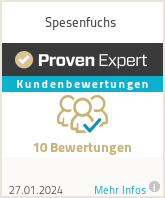SPESENFUCHS
The topic of non-monetary compensation and travel expenses causes confusion time and again.
Since the 2014 travel expenses reform, there has been a new, clear regulation for the connection between non-cash benefits and travel expenses, which we explain below.
What are benefits in kind?
Non-cash benefits are goods and services that an employer provides to its employee as a non-cash bonus. This may be the private use of a company car or a gift in kind. Free or reduced-price meals in the in-house cafeteria are also a benefit in kind. The advantage of the non-cash benefit is that the employer supports its employees financially without the employee having to pay tax on it. The value of all benefits in kind added together may not exceed a certain amount per month. This amount usually changes annually.
Where is the connection to travel expense reporting here?
One might think that the tax-free lump sums are also benefits in kind. However, this is not the case. Prior to the 2014 travel expense reform, it was possible to pay tax on meals as a non-cash benefit instead of deducting them from the per diem meal allowance. This was more fiscally attractive for the employee. This procedure is no longer allowed today.
However, in the case where an employee is traveling for less than 8 hours on business (i.e. is not entitled to additional meal expenses) and the employer provides a meal for him/her, this is considered a benefit in kind. In this case, the non-cash benefit must be taxed within the employee’s payroll. These amounts also change every year.
Spesenfuchs takes over both the decision whether a non-cash benefit has to be recognized or not for you quite automatically.


